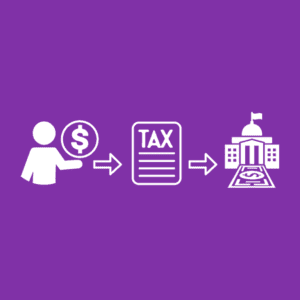Everything you need to know to take advantage of the Arizona Charitable Tax Credit, updated for the 2023 tax year

You’ve probably heard of the Arizona Charitable Tax Credit, but don’t know all the details about it. That’s okay! You're not alone. Most taxpayers do not know how to take full advantage of Arizona’s state tax credits, including the ability to combine multiple tax credits and carry forward the tax benefits over several years.
The state of Arizona provides a variety of individual tax credits, including the AZ Charitable Tax Credit and the Public School Tax Credit. These tax credits allow taxpayers to make charitable contributions and receive dollar-for-dollar reductions in their Arizona state tax liabilities.
Fortunately, here is the ultimate guide to the Arizona Charitable Tax Credit for the 2023 tax year – a true “deep dive” into the details. Taxpayers will find everything they need to know in order to take advantage of this and other Arizona state tax credits. Read on to learn more, and then consult with your personal tax advisor for advice on your specific tax situation.
DISCLAIMER: This material has been prepared for informational purposes only and is not intended to provide, and should not be relied on for, tax, legal, or accounting advice. No warranty or representation, express or implied, is made by Phoenix Children’s Foundation, nor does Phoenix Children’s Foundation accept any liability with respect to the information provided on our website. You should consult with your professional advisor(s) prior to acting on the information in this guide.
Understanding the Arizona Charitable Tax Credit
The Arizona Charitable Tax Credit is a set of two nonrefundable individual income tax credits for charitable contributions to Qualifying Charitable Organizations (QCOs) and Qualifying Foster Care Charitable Organizations (QFCOs). The maximum allowable credit for contributions to QCOs for 2023 (for the 2022 tax year) is $841 for married filing jointly filers or $421 for single, married filing separately, and heads of household filers. For 2024, for the 2023 tax year, the maximum allowable credit for contributions to QCOs is $938 for married filing jointly filers or $470 for single, married filing separately, and heads of household filers. The maximum credit for contributions to QFCOs for 2023 (for the 2022 tax year) is $1,051 for married filing jointly or $526 for single, married filing separately, and heads of household filers. For 2024, for the 2023 tax year, the maximum credit for contributions to QFCOs is $1,173 for married filing jointly or $587 for single, married filing separately, and heads of household filers.
These tax credits provide dollar-for-dollar tax benefits, allowing taxpayers to reduce their state tax liabilities for each dollar donated to charities, up to the maximum allowable limits.
Guidelines for the Arizona Charitable Tax Credit
Here are some general guidelines for using the Arizona Charitable Tax Credit. Please consult your tax advisor for advice on your specific tax situation.
- Donations must be made by individuals (corporations, foundations, partnerships, etc. do not qualify).
- Donations must be made in cash (property donations do not quality, nor do in-kind donations such as toys, books and services).
- Donations must be made to Qualified Charitable Organizations or Qualifying Foster Care Charitable Organizations that have been certified by the state of Arizona; gifts to non-certified charities are not eligible for the AZ Charitable Tax Credit.
- Credits that are not applied to tax obligations for the current tax year can be carried forward to future tax years (more on that below).
How to document your donation and claim your Arizona tax credits
Fortunately, the process for making a charitable contribution and claiming the Arizona Charitable Tax Credit is relatively straightforward. There are four steps to document your donation and claim your tax credits.
- Donate to a certified charitable organization (QCO or QFCO), such as a 501(c)(3) organization like Phoenix Children’s.
- Maintain a receipt of your gift from the charity to provide a copy with your tax return.
- Complete the relevant tax form to claim one or more credits for your gift(s): Arizona Form 321 for gifts to QCOs, and/or Arizona Form 352 for gifts to QFCOs.
- Calculate your individual tax return (e.g. Arizona Form 140, 140 X&Y Tables or 140X), subtracting your tax credits from your tax liability, in order to reduce your Arizona state tax balance. Include either Arizona Form 321 or Arizona Form 352, or both, with this return.
For example, if a single individual owes $2,000 in taxes but donates $421 to a qualifying charitable tax organization, their tax liability is reduced to $1,579.

Utilizing the Arizona Charitable Tax Credit through payroll withholding
Are you interested in an easier way to give to your favorite qualifying charity? On both Arizona Form 321 and Arizona Form 352, you are permitted to record charitable contributions made through payroll withholding, provided that your employer is able to withhold contributions to eligible Arizona Charitable Tax Credit organizations from your pay. Be sure to contact your employer prior to setting up donations through payroll withholding.
How the Arizona Charitable Tax Credit shifts control to taxpayers
The Arizona Charitable Tax Credit gives taxpayers more choice in how their tax dollars are allocated. Consider the example of a single taxpayer who makes a $421 donation to an eligible QCO, and a second $526 gift to a QFCO. The taxpayer then claims the maximum allowable credit for these contributions (the $421 maximum tax credit for a QCO, and the $526 maximum credit for a QFCO), reducing their state tax liability, dollar-for-dollar.
This taxpayer has effectively redirected $947 of her state tax payment from the state’s general fund to the two charitable organizations of her choice. This is the underlying benefit of the Arizona Charitable Tax Credit – it shifts control away from the state and gives individuals the power to determine which deserving organizations will receive tax revenue. Taxpayers themselves can direct tax dollars to charities whose services they believe provide the most value to their local communities.
This program grows in popularity each year—and for good reason. The impact on the community continues to increase; between 2011 and 2016, twice the number of taxpayers in Arizona claimed the credit, awarding more than $34 million to qualifying charities.
Tax credits vs. tax deductions
Before we go any further, it’s important to draw a distinction between tax credits and tax deductions. Credits and deductions differ in how they impact an individual’s tax obligations.
A tax credit reduces an individual’s tax liability (or the total amount of tax debt owed to the government) on a dollar-for-dollar basis. For every dollar an individual claims as a tax credit, her tax obligation is reduced by a dollar. In contrast, a tax deduction reduces an individual’s taxable income. For every dollar an individual claims as a tax deduction, her taxable income is reduced by a dollar. Based on the calculation from her income bracket, the individual pays a tax on the amount left over after deductions are subtracted.
Consider the example of a single taxpayer with $40,000 in taxable income and an effective Arizona state tax rate of 3% (this rate is just used for the purposes of an example; current Arizona state income tax rates can be found on the IRS website). In this case, the taxpayer’s Arizona state tax liability is $1,200 (3% of $40,000).
Now let’s assume this individual has donated $421 to a Qualifying Charitable Organization and $526 to a Qualifying Foster Care Charitable Organization; then she takes the $421 maximum allowable tax credit for a gift to a QCO, and the $526 maximum allowable tax credit for a gift to a QFCO. In this scenario, these two tax credits would reduce the individual taxpayer’s liability by $947 ($421 + $526), from $1,200 to $253. The individual would end up paying $253 to the state of Arizona.
Next, let’s consider the implications of two equivalent tax deductions for the same taxpayer. In this example, assume the individual makes the same two donations of $421 and $526, except in this case the gifts are made to two charities that have not been certified as either a QCO or QFCO by the state of Arizona. In this scenario, these two tax deductible gifts would reduce the individual’s taxable income by $947 ($421 + $526), from $40,000 to $39,053. After applying the 3% effective tax rate to the individual’s $39,053 of taxable income, the individual taxpayer’s liability would be $1,171.59, resulting in a higher payment to the state of Arizona.
The Working Poor Tax Credit
History lesson: the tax credit for gifts to Qualifying Charitable Organizations dates back to 1998, and used to be called the “Working Poor Tax Credit.” In the tax year 2012, this credit “was expanded to include certified charitable organizations that provide immediate basic needs to Arizona residents who receive temporary assistance under benefits for needy families, are low income Arizonans or are children who have a chronic illness or physical disability,” said Ed Greenberg, former spokesman for the Arizona Department of Revenue. Now, this credit is part of the “Arizona Charitable Tax Credit” umbrella term that is used to describe the tax credits for gifts to both QCOs and QFCOs.
Limits to the Arizona Charitable Tax Credit
What is the maximum allowable credit?
As noted above, the maximum allowable credit for contributions to QCOs for single taxpayers, married (filing separately) filers or heads of households is $421; for joint taxpayers, the maximum credit is $841. And to recap, the maximum credit for contributions to QFCOs for single taxpayers, married (filing separately) filers or heads of households is $526; for joint taxpayers, the maximum credit is $1,051. Other Arizona tax credits have similar limits, and these are outlined later on in this article.
Minimum dollar requirements for the Arizona Charitable Tax Credit
Donors often wonder whether they can receive tax credits under the Arizona Charitable Tax Credit for smaller gifts, especially when they want to support a charity but are not able to donate hundreds of dollars. To clarify, there is no minimum dollar requirement for the Arizona Charitable Tax Credit. Charitable contributions to QCOs and QFCOs do not have to exceed a minimum dollar threshold. A single taxpayer who wants to contribute $421 to a QCO and claim the maximum allowable credit may do so; likewise, a taxpayer can make a $5 donation, record this gift on Arizona Form 321, and receive a tax credit in the amount of $5 from the state of Arizona.
A five-year carry forward period
The Arizona Charitable Tax Credit permits any credits for contributions to QCOs and QFCOs that are not applied against tax obligations for the most recent taxable year to be carried forward for a period of five consecutive years. However, the instructions for Arizona Form 321 and Arizona Form 352 both contain an important, identical caveat: “You may carry over only that portion of the credit that you do not apply to tax. You cannot carry over any amount that you gave that was more than the maximum amount allowed as a credit.”
Let’s clarify this limitation with an example. Consider the case of a single taxpayer with an Arizona state liability of $700, who had contributed $526 to a QFCO and $1,000 to a QCO in the most recent taxable year. In order to offset their $700 tax liability, this individual may claim the $526 maximum allowable tax credit for a gift to a QFCO and a $174 tax credit for the QCO gift (remember, the maximum allowable tax credit for a gift to a QCO is $421, so this is within the limit). Since these two credits completely offset the $700 tax owed, the taxpayer now owes the state of Arizona nothing ($0).
But what about the remaining $826 from the QCO gift ($1,000 minus the $174 tax credit that was applied)? In this case, the individual has an available credit carryover of $247, since only $174 of the $421 maximum allowable tax credit for a QCO donation was applied against her current tax liability. This remaining $247 tax credit may be used for the next tax year. The remaining $579 of the original $1,000 gift ($1,000 – $174 tax credit – $247 credit carryover) may not be used as a tax credit for the most recent tax year, nor may it be used as a tax credit in any future years.
Arizona state tax credits cannot exceed a taxpayer’s current tax liability
You may have noticed from the example above that the taxpayer did not use the $247 tax credit carryover to generate a tax refund for the most recent tax year. This is due to another limitation that is spelled out in the instructions for both Arizona Form 321 and Arizona Form 352, which state, “Because this is a nonrefundable credit, the total amount of available credit [current year plus any valid carryover amount(s)] that a taxpayer may use for the taxable year cannot be greater than the tax liability shown.”
Put simply, this means that tax credits from the Arizona Charitable Tax Credit can only be applied up to a taxpayer’s current Arizona state tax liability. The tax credits cannot be used to receive money back from the state of Arizona. Of course, based on your specific tax situation, you may still be eligible for a state tax refund, so be sure to consult with your tax advisor for advice on your specific tax circumstances.
By comparison, “a refundable tax credit can reduce a taxpayer’s tax liability to below zero, which means if the amount of a refundable tax credit is more than the amount of taxes due, the difference will be paid to the taxpayer as a tax refund,” according to Ed Greenberg, former spokesman from the Arizona Department of Revenue.
Arizona standard deduction adjustments
In 2019, the passage of Arizona HB 2757 introduced adjustments to Arizona’s standard deduction amounts, aligning them with the federal standard deduction. For the 2022 tax year, for single and married (filing separately) taxpayers, Arizona’s standard deduction was $12,950; this amount has risen to $13,850 for the 2023 tax year, and will rise again to $14,600 for the 2024 tax year. For head of household filers, Arizona’s standard deduction for the 2022 tax year was $19,400; this amount has risen to $20,800 for the 2023 tax year, and will rise again to $21,900 for the 2024 tax year. And for married (filing jointly) taxpayers, Arizona’s standard deduction was $25,900 for the 2022 tax year; this amount has risen to $27,700 for the 2023 tax year, and will rise again to $29,200 for the 2024 tax year.
To allay fears that increasing Arizona’s standard deductions could curb charitable giving, Arizona HB 2757 also stipulates that “the Arizona standard deduction can be increased by 25 percent of the charitable deductions the taxpayer would have claimed if they had itemized their deductions,” according to Ed Greenberg, formerly of the Arizona Department of Revenue. This increase ensures that taxpayers who would have otherwise donated and claimed those gifts while itemizing their tax deductions will still be incentivized to make charitable contributions.
Eligible charity organizations for the Arizona Charitable Tax Credit
The Arizona Charitable Tax Credit is meant to provide taxpayers with a mechanism for supporting charities that offer services to low-income residents with chronic illnesses or disabilities. For that reason, Phoenix Children’s is certified as a Qualifying Charitable Organization. Phoenix Children’s specializes in providing life-saving and life-changing medical services to critically ill and injured children, and was named one of U.S. News & World Report’s Best Children’s Hospitals for the 13th consecutive year in 2023. Furthermore, 51.5% of patient families at Phoenix Children’s receive health care coverage via the Arizona Health Care Cost Containment System (AHCCCS). Phoenix Children’s also takes health care services directly to the most vulnerable in our community through the Homeless Youth Outreach program.
What is a Qualifying Charitable Organization (QCO)?
The Arizona Department of Revenue (ADOR) defines Qualifying Charitable Organizations (QCOs) as those that “provide immediate basic needs to residents of Arizona who receive temporary assistance for needy families (TANF) benefits, are low income residents of Arizona, or are children who have a chronic illness or physical disability.” QCO organizations are also required to spend at least half of their annual budgets on “qualified services for qualified Arizona residents,” according to ADOR.
Let’s clarify a couple of these QCO requirements.
Temporary Assistance for Needy Families (TANF)
First, TANF is a federal program that provides grant money to states. The program has a variety of goals, and income eligibility for TANF is determined at the state level. States utilize the federal government’s grant funding, often in the form in direct cash assistance, in order to help needy families meet basic needs.
What is “low income” in Arizona?
Next, “low income” sounds like a subjective term, and to some extent it is – the income threshold for receiving cash assistance from TANF in Arizona differs from the income limit for Arizona Health Care Cost Containment System (AHCCS) eligibility, for example – but the state’s underlying purpose is clear. The Arizona Charitable Tax Credit is intended to spur donations to charitable organizations that provide a significant number of services for Arizona residents experiencing financial insecurity.
What is a Qualified Foster Care Charitable Organization (QFCO)?
Qualifying Foster Care Charitable Organizations (QFCOs) meet all the requirements listed above for QCOs, but with one additional condition. A QFCO charity must spend at least 50% of its budget on services for children who have been placed in foster homes or child welfare agencies, according to the instructions for Arizona Form 352.
List of Qualifying Charitable Organizations (QCOs) and Qualified Foster Care Charitable Organizations (QFCOs)
Each year, the Arizona Department of Revenue updates its list of the qualifying charities that meet the Department’s certification requirements. Greenberg notes that it’s important for Arizona taxpayers to review this list, stating, “The Department of Revenue recommends taxpayers considering a tax credit donation confirm the organization has been certified by the agency as a qualifying charitable organization before making the donation if it is for tax purposes.”
Phoenix Children’s is a 501(c)(3) organization that meets the state of Arizona’s QCO certification requirements, qualifying the Hospital to receive charitable contributions under the Arizona Charitable Tax Credit.
Deadlines and key dates for the Arizona Charitable Tax Credit
Contrary to popular belief, Arizona taxpayers do not need to make their charitable contributions to QCOs and QFCOs before December 31 of a given year in order to be eligible for state tax credits for that tax year. The state of Arizona allows taxpayers to claim tax credits for gifts into April of the current year for the prior tax year. In 2024, the deadline for making a charitable contribution for the 2023 tax year under the AZ Charitable Tax Credit is April 15, 2024.
The state of Arizona, however, does require donations from different calendar years to be listed separately on Arizona Form 321 and Arizona Form 352. For the 2023 tax year, cash contributions that were made between January 1, 2023, and December 31, 2023, are required to be listed on Part 1, section A of both Arizona Form 321 (for QCO gifts) and Arizona Form 352 (for QFCO gifts). Cash contributions that were made between January 1, 2024, and April 15, 2024, are required to be listed on Part 1, section B of both Arizona Form 321 (for QCO gifts) and Arizona Form 352 (for QFCO gifts).
The IRS deadline for federal credits and deductions differs from state deadlines
IRS deadlines are different from Arizona’s state deadlines, however. The IRS specifies that, in order for contributions to be deductible on federal tax returns, contributions must be made “before the close of your tax year.” Keep this in mind when planning your charitable contributions and estimating your state and federal tax credits and deductions, and be sure to consult with your tax advisor regarding the optimal timing of your charitable gifts.
Additional Arizona state tax credits you need to know about
The state of Arizona offers additional state tax credits that allow taxpayers to contribute to a variety of charitable organizations and specify how a portion of their tax dollars are allocated. Note that these tax credits are independent, so taxpayers can take advantage of multiple tax credits on the same tax return.
Public School Tax Credit
The Public School Tax Credit is a nonrefundable credit for cash contributions to Arizona public schools, including the direct payment of certain types of public school fees, which are outlined in the instructions for Arizona Form 322. This credit was created for individual taxpayers (corporations, partnerships, etc., are not eligible), who can “donate to a public school so they can utilize that towards their extracurricular activities — sports, art, music,” according to Stefan Swiat, former spokesperson from the Arizona Department of Education.
However, the scope of this tax credit has expanded, starting with 2019 tax year, according to Ed Greenberg, former spokesman of the Arizona Department of Revenue. He notes, “For public schools, one change for this tax filing season is that an individual’s contribution to a public school can now go to more than just extracurricular activities, such as acquiring certain capital items such as books and equipment, community school meal programs, student consumable health care supplies and playground equipment.” This change is in effect until June 30, 2024.
The maximum allowable credit for contributions to public schools is $400 for married filing jointly filers, or $200 for single, married filing separately, and heads of household filers. This tax credit is available for cash contributions, and is claimed on Arizona Form 322. Taxpayers can claim charitable contributions to Arizona public schools made through payroll withholding, and this tax credit has a five year carryover period. Like the Arizona Charitable Tax Credit, the deadline for making a charitable contribution for the 2023 tax year under the Public School Tax Credit is April 15, 2024.
Credit for Contributions to Private School Tuition Organizations
The Credit for Contributions to Private School Tuition Organizations, otherwise known as the Private School Tax Credit, is a nonrefundable individual income tax credit for charitable contributions to private school tuition organizations (STOs) that provide educational scholarships to private school students. This credit is only available for individuals (corporations, partnerships, etc., are not eligible). The maximum allowable credit for contributions to private schools for the 2023 tax year is $1,308 for married filing jointly filers, or $655 for single, married filing separately, and heads of household filers. For the 2024 tax year, the maximum allowable credit for contributions to private schools will rise to $1,459 for married filing jointly filers, or $731 for single, married filing separately, and heads of household filers.
This tax credit is available for cash contributions, and is claimed on Arizona Form 323. Taxpayers can claim charitable contributions to Private School Tuition Organizations made through payroll withholding, and this tax credit has a five year carryover period. Like the Arizona Charitable Tax Credit, the deadline for making a charitable contribution for the 2023 tax year under the Private School Tax Credit is April 15, 2024.
Credit for Contributions to Certified School Tuition Organizations
The Credit for Contributions to Certified School Tuition Organizations, also known as the Switcher Individual Income Tax Credit, is available for individual taxpayers who not only claim the maximum allowable credit on Arizona Form 323 for the Credit for Contributions to Private School Tuition Organizations, but also make an additional charitable gift to a Certified School Tuition Organization (STO). The instructions for Arizona Form 348 define the requirements for certified STOs. Notably, STO organizations must make “scholarships or grants available to students of more than one qualified school,” and neither charter schools nor programs run by charter schools are considered to be qualified schools for the purposes of this tax credit.
The maximum allowable credit allowed for this specific tax credit for the 2023 tax year is $1,301 for married filing jointly filers, or $652 for single, married filing separately, and heads of household filers. For the 2024 tax year, the maximum allowable Credit for Contributions to Private School Tuition Organizations will rise to $1,451 for married filing jointly filers, or $728 for single, married filing separately, and heads of household filers.
This tax credit is available for cash contributions, and is claimed on Arizona Form 348. Taxpayers can claim charitable contributions made through payroll withholding for the purposes of this tax credit, and there is an available five-year-credit carryover. Like the Arizona Charitable Tax Credit, the deadline for making a charitable contribution for the 2023 tax year under the Credit for Contributions to Certified School Tuition Organizations is April 15, 2024.
Electric vehicle tax credits in Arizona
At this point, you might be thinking, “Wait, what about that electric vehicle tax credit that I’ve heard about for electric cars like the Tesla?” Fortunately, there is a federal tax credit available for electric cars, but there are rules and exceptions to consider.
If you purchase a new plug-in electric vehicle (EV) or fuel cell electric vehicle (FCV), you may be eligible for a tax credit of up to $7,500 under Internal Revenue Code Section 30D. The Inflation Reduction Act of 2022 has modified the rules for this credit for vehicles bought between 2023 and 2032.
This credit is open to both individuals and businesses. To qualify, the vehicle must be purchased for personal use, not for resale, and must be primarily used in the U.S. There are income limits based on modified adjusted gross income (AGI): $300,000 for married couples filing jointly, $225,000 for heads of households, and $150,000 for all other filers.
You can use the modified AGI from the year you receive the vehicle or the previous year, whichever is lower. If your modified AGI falls below the threshold in either of these years, you are eligible to claim the credit.
It's important to note that the credit is nonrefundable, meaning you can't receive more in credit than you owe in taxes, and any excess credit cannot be carried over to future tax years.
Your vehicle’s delivery date also impacts your available electric vehicle credit, regardless of the purchase date.
For vehicles delivered between January 1 and April 17, 2023, the credit can be up to $7,500, consisting of a $2,500 base amount, plus $417 for every kilowatt hour of battery capacity beyond 5 kilowatt hours. The minimum credit is generally $3,751, applicable to a vehicle with a minimum 7 kilowatt hours of battery capacity.
For vehicles delivered on April 18, 2023, or later, they must meet the earlier criteria and new requirements related to critical minerals and battery components to qualify for a credit. The credit can be up to $7,500, distributed as follows: $3,750 if the vehicle satisfies the critical minerals requirement only, $3,750 if it meets the battery components requirement only, and $7,500 if it fulfills both. Vehicles failing to meet either requirement will not qualify for a credit.
At the state level, Arizona offers only minor benefits for alternative fuel vehicle owners, such as a reduced license tax, and an HOV lane exception.
More Arizona state tax credits
The state of Arizona offers a handful of additional individual and business tax credits. Visit azdor.gov/tax-credits for more information, and see Arizona Form 301 for an exhaustive list of Arizona’s state tax credits.
Arizona state tax credits vs. federal tax credits and deductions
While the state of Arizona permits both tax credits and tax deductions for charitable gifts, IRS rules stipulate that charitable gifts – both cash and property – must be claimed as tax deductions, rather than credits. In fact, page 3 of IRS Publication 526 spells this out plainly, “Generally, you can deduct contributions of money or property you make to, or for the use of, a qualified organization.” The IRS only allows deductions for gifts made to qualified tax-exempt organizations, such as 501(c) (3) entities and other eligible organizations; IRS Publication 526 covers this in detail.
Reducing tax deductions by value received
IRS rules dictate that if a taxpayer receives a benefit from a charitable contribution, the taxpayer can only deduct the value of the gift minus the value of any goods or services received (note that the state of Arizona also has this requirement). For example, a taxpayer who donates $1,000 in return for an event ticket worth $200 would only be able to recognize a tax deduction of $800 ($1,000 – $200).
Arizona and IRS credit carry forward period
Both the state of Arizona and the federal government allow a carry forward period when itemizing deductions for charitable contributions. See IRS Publication 526 for federal tax guidelines. As noted above, this carry forward period also applies for tax credits under the Arizona Charitable Tax Credit.
IRS and Arizona state charitable gift documentation requirements
The IRS and the state of Arizona both require documentation to substantiate charitable contributions. Page 1 of IRS Publication 526 outlines recordkeeping requirements for federal tax deductions. Substantiation requirements for charitable donations in the state of Arizona are similar, and Qualifying Charitable Organizations and Qualifying Foster Care Charitable Organizations will provide donation receipts for use in substantiating state tax credits and deductions.
Arizona and the IRS allow charitable contributions through payroll withholding
As described in Chapter 2 above, the state of Arizona allows charitable contributions through payroll withholding, and IRS rules also permit this practice for federal tax purposes. According to IRS Publication 526, donors may substantiate payroll deductions through a pledge card from the charitable organization, along with one of the following: a pay stub from an employer, a W-2 form, or another employer-provided document that details the amount withheld and donated to a charitable organization.
2019 IRS rule change for Adjusted Gross Income Limit
For years, the IRS had limited tax deductions for charitable contributions to up to 50% of a taxpayer’s Adjusted Gross Income (AGI). However, starting in 2019, for the 2018 tax year, the IRS raised the limit on charitable contributions of cash from 50% to 60% of a taxpayer’s Adjusted Gross Income. The IRS has since maintained a limit on charitable gifts of cash of up to 60% of a taxpayer’s Adjusted Gross Income. Check out the video below, where Giancarlo Estrada of Kamper Estrada, LLP outlines the IRS rule change for Adjusted Gross Income:
The latest version of IRS Publication 526 should provide additional details on AGI limits. Be sure to consult with your tax advisor before claiming deductions up to the 60% AGI limit.
IRS forms to use for documenting federal tax credits and deductions
To itemize your federal tax deductions, use IRS Form 1040, Schedule A. Donations of property or other goods should be recorded on IRS Form 8283 for Noncash Charitable Deductions. See Chapter 2 above for Arizona state tax forms.
Relevant contact information for the Arizona Charitable Tax Credit
If you’ve made it this far and still have questions, then you’re probably wondering who you can call for help. Please remember: call a tax advisor first to discuss your specific situation. If you need recommendations for a good tax advisor, contact us here at Phoenix Children’s. We will be happy to point you in the direction of a tax consultant who is well-versed on the details of the Arizona Charitable Tax Credit.
Contact information provided by Arizona Form 321 and Arizona Form 352
The instructions for both Arizona Form 321 and Arizona Form 352 provide two phone numbers for inquiries about the credits for contributions to Qualifying Charitable Organizations and Qualifying Foster Care Charitable Organizations.
- From within the Phoenix metro area, call: 602-255-3381
- From area codes 520 and 928, call toll-free: 800-352-4090
Arizona Department of Revenue contact information
For more general inquiries, you may also call the Arizona Department of Revenue’s customer care line at 602-255-3381. You can find additional contact information for the Arizona Department of Revenue on the Department’s website.
Key points for the Arizona Charitable Tax Credit
So that is what you need to know for 2024 in order to take advantage of the Arizona Charitable Tax Credit for the 2023 tax year. It’s a lot of information to take in, and many readers will have skimmed this article, so a handful of key points about the tax credit are summarized below. Hopefully, the tips and information above will prove useful as you calculate your taxable income, plan your charitable contributions, and complete your state and federal tax forms for the 2023 tax year.
Top takeaways: Arizona Charitable Tax Credit
In summary, Arizona taxpayers have a lot of options when it comes to utilizing state tax credits to reduce their Arizona state tax liabilities. But there is a lot of information to absorb in order to utilize these credits, especially the Arizona Charitable Tax Credit. Here are some of the key facts to know, along with links to the associated chapters above:
- As a tax credit, the Arizona Charitable Tax Credit reduces an individual’s tax liability. This differs from tax deductions, which reduce taxable income (Chapter 1).
- The Arizona Charitable Tax Credit permits any credits for contributions to Qualified Charitable Organizations (QCOs) and Qualifying Foster Care Charitable Organizations (QFCOs) that are not applied against tax obligations for the most recent taxable year to be carried forward for a period of five consecutive years (Chapter 1).
- For single taxpayers, married filing separately filers or heads of household filers, the maximum allowable credit for contributions to QCOs is $421; for joint taxpayers, the maximum credit for QCO contributions is $841. For QFCO donations, the maximum allowable credits are $526 for single, married filing separately and head of household filers, or $1,051 for married filing jointly (Chapter 2).
- To qualify for the Arizona Charitable Tax Credit, donations must be made to state-certified QCOs or QFCOs (Chapter 3).
- The deadline for making a donation and claiming a tax credit under the AZ Charitable Tax Credit for 2023 is April 15, 2024 (Chapter 4).
- In addition to the Arizona Charitable Tax Credit, the state of Arizona offers several additional tax credits; taxpayers can combine these credits to reduce their state tax liability (Chapter 5).
- Federal regulations may limit how taxpayers can utilize state tax credits (Chapter 6).
Now it’s your turn. It’s time to take the information that you’ve learned above, donate to the state-certified charitable organizations of your choice, and utilize Arizona’s state tax credits to control how a portion of your tax dollars are spent. And when you’re evaluating charitable organizations, please consider donating to support Phoenix Children’s, a 501(c)(3) organization that qualifies for the Arizona Charitable Tax Credit as a state-certified Qualifying Charitable Organization. Your donation helps deliver world-class care, close to home, for every child when they need it most.
DISCLAIMER: This material has been prepared for informational purposes only and is not intended to provide, and should not be relied on for, tax, legal, or accounting advice. No warranty or representation, express or implied, is made by Phoenix Children’s Foundation, nor does Phoenix Children’s Foundation accept any liability with respect to the information provided on our website. You should consult with your professional advisor(s) prior to acting on the information in this guide.




